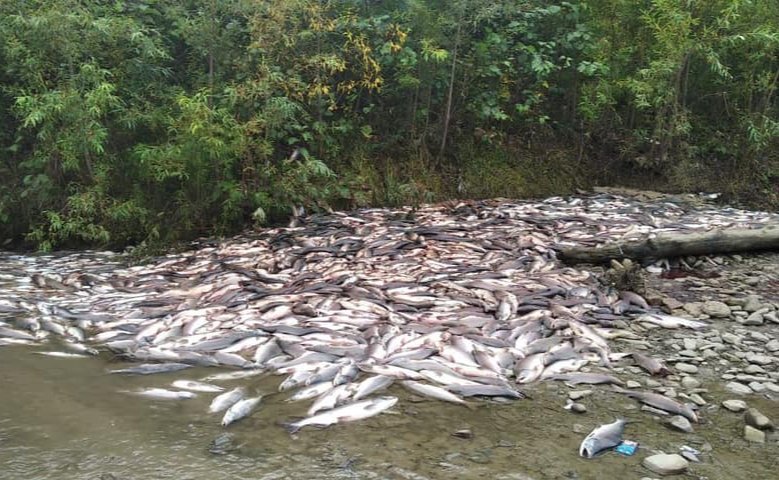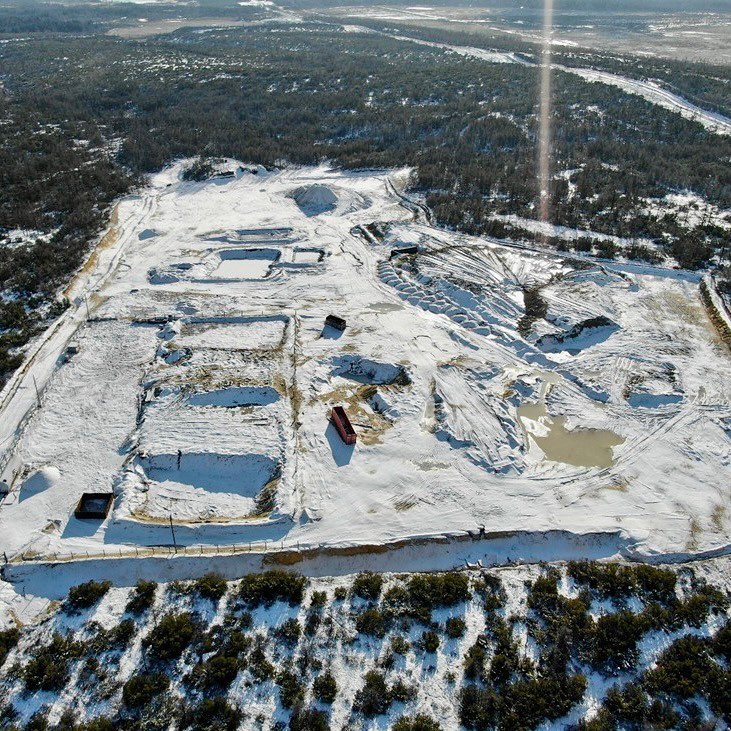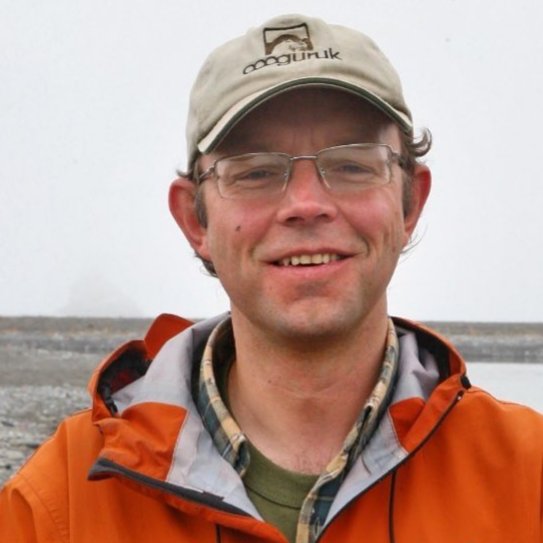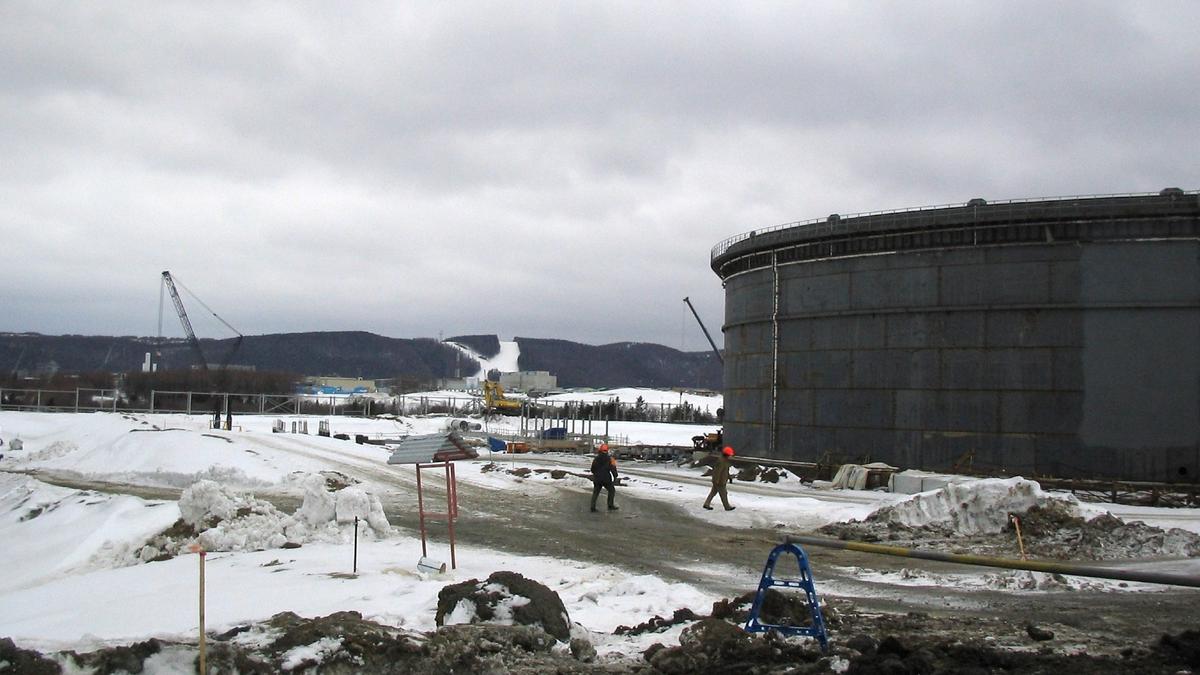The Sakhalin Environment Watch worked on the Russian island of Sakhalin for 27 years. It has now been shut down. To be honest, these pesky environment activists were a thorn in everyone’s side.
Their actions (harmful and corrosive, of course) forced major oil and gas projects to raise their safety standards, gold miners were made to stop polluting fish spawning rivers, loggers had to stop cutting down trees in protected reserves, “whale prisons” were shut down, while waste plants were built at oil-extracting enterprises…
It was simply impossible to tolerate these shenanigans any longer. The nature activists were dealt with the way Russian authorities know best. On 16 December, the Sakhalin Environment Watch was declared a “foreign agent” following a complaint, along with one other island environment organisation — the centre for protection and study of the salmonids.
Who are they
The Sakhalin Environment Watch is an NGO established in 1995 to protect the island wildlife. Various volunteers, journalists, scientists, and businessmen were helping the NGO to carry out its mission.
In 2015, the organisation was already labelled as a “foreign agent”, but they managed to prove otherwise in courts (the case went all the way to the European Court of Human Rights). The ecologists, however, were not compensated in any way. The NGO was also left without any foreign financing correspondingly in 2015. Previously, they were getting exclusively private grants just like hundreds of Russian scientists, for instance.
Moreover, the Russian Justice Ministry already inspected the organisation in February 2022 and did not uncover any foreign agent signs, traces of foreign funds and influence or political activities.
But that was in February, and we are in December now.
“The inspectors ruled that we were under ‘foreign influence’ because several members of the Environment Watch (who do not work for the organisation) worked for another organisation (the centre for protection and study of the salmonids) which received funds from overseas. They also classified actions of two other NGO members who took part in public events on their own behalf and not represented the Environment Watch as political activities,” Sakhalin Environment Watch members write.
The NGO indeed cooperated with the salmonid centre. However, it is not banned by law and does not automatically trigger the foreign agent label.
The legal liquidation will take 3 more months. The Environment Watch will go to court to challenge the fine slapped on them for not voluntarily adding themselves to the “foreign agent” list. The ecologists won’t fight the Justice Ministry’s motion to place the NGO on that list because it’s pointless, as they put it.

Pink salmon killed by poachers in Sakhalin’s Lazovaya River. Photo: Sakhalin Environment Watch
How they were destroyed
The Environment Watch was shut down after a complaint. It is not disclosed who filed it. The activists intend to seek the truth in Russian courts (we can only wish them luck here):
“We did not violate any laws, were not acting under anyone’s influence and have always worked to ensure the environmental protection of our native country and preservation of its unique wildlife. Everyone who is familiar with what the Environment Watch does knows it. You don’t get to choose the time you are in, but you can choose how to live this time. Unfortunately, the only option for us today is to cease all projects and liquidate the organisation,” the NGO announced.
The Sakhalin Environment Watch stresses that it is impossible to work as a “foreign agent”, pointing to additional responsibilities and limitations (particularly those when appealing to those in power), red-tape reports, expensive audits, the necessity to notify about programmes and events before they begin. “Foreign agents cannot participate in consultative, advisory, and expert commissions for bodies of power, conduct anti-corruption expertise, organise referendums or public events,” the activists add. “It is forbidden to hold education activities for minors, secure government support or carry out public ecological expertise. And it is not all.”
“Any violation entails a fine.”
“So, you didn’t keep an eye on a member, and they wrote a post or a comment without a [foreign agent] disclaimer: it means a fine. You left on an urgent mission and didn’t notify the Justice Ministry: another fine.”
“You attended a round-table discussion and spoke there, and there somehow was a minor in attendance as well: a fine. And so on. Two fines during a year: a criminal case. Your only work will be to track yourself and file reports and notices about any sneeze under a high risk of a criminal case and major fines. We have no power, funds or desire to do that.”
What they were doing
The Environment Watch took to social media platforms to list their achievements over the years. The list is far from being complete:
- Ban on dumping drilling waste into all Russian seas.
- Preservation from logging of the last large swathe of the virgin Sakhalin Forest and creation of the Vostochny sanctuary for its protection.
- Ban on destructive slash-and-grass logging on Sakhalin and logging in all island sanctuaries.
- Elimination of Rosneft’s huge oil lake in the Katangli settlement and construction of treatment facilities at the company’s oil fields.
- Saving the unique population of western grey whales off northeast Sakhalin from extinction and record-breaking improvements in environmental standards and safety at the Sakhalin-1 and Sakhalin-2 international oil and gas projects.
- Complete cessation of waste incineration at the main Yuzhno-Sakhalinsk landfill and blocking the construction of a new landfill site near the Khomutovo village.
- Protection of the Anna River and Busse Lake natural monuments from commercial fishing.
- Ending 50 years of pollution of the Langeri River, a major spawning river, with gold mining waste and restoring full salmon spawning in it.
- Release of almost 100 orcas and beluga whales from the “whale prison”, listing of the Far Eastern carnivorous killer whale population in the Red Book and complete cessation of catching live cetaceans in the Far East for the entertainment industry.

An oil refinery waste landfill that the activists were fighting against for several years. Photo: Sakhalin Environment Watch
First-hand comment
Novaya Gazeta Europe spoke to Dmitry Lisitsyn, head of Sakhalin Environment Watch.

Dmitry Lisitsyn
Head of Sakhalin Environment Watch
So, what did you get busted for?
How the hell do we know? Someone filed a complaint. We don’t know their name or any other information. The Justice Ministry showed us a copy with undisclosed personal data.
Who could it be? Rosneft? Gas companies?
Anyone could, you know? It’s unlikely to be Rosneft: it has lately significantly reduced extraction and has been shutting down issue-fraught fields. A new owner came on the scene. We didn’t work in this area much because there weren’t any major issues. Local oil specialists, an independent company that came to succeed Rosneft seemingly allowed some firm (not even a firm, more like a group of people with hardware) to dig up, scrap, and take away an oil pipeline.
They started doing this, while the oil left in the pipes was just poured out. Locals told us, we drew a lot of attention to it and went to the press. State authorities intervened in the end and started acting: they stopped it and punished those responsible. But this is a very small episode, unlikely to be for that.
Well, you know, anyone could do it. We were really in the way of the Sakhalin region’s government cutting down unique forests near Yuzhno-Sakhalinsk while constructing the Mountain Air skiing resort, hotels, and so on.
On top of that, there is the ‘salmon issue’.
We are really making it difficult for fishers to catch Pacific Ocean salmon. Mainly, the pink salmon northeast of Sakhalin, as they would like to do.
Will you continue the court trials?
We only have one active court case, a solid household waste landfill. The appeal is scheduled for January. We think that we will have enough time to see it through. We will need at least 3 months to shut the organisation down, so we hope we can finish the case. We will not, however, take up any new ones. We just cannot start them because of the [foreign agent] status…
Will you register a new organisation?
We don’t know yet. We are now thinking about various options to continue working. There’s no solution as of now. The organisation had 14 members. We asked all of them to resign, there are 4-5 people left, there will be probably 3 in the end. Just so that it doesn’t affect the people, to protect them. Everyone understands everything.
Maybe there were some calls or warnings?
No, nothing at all! We just received a notice from the Justice Ministry on a beautiful November day that an inspection is launched into our organisation.
You don’t have any foreign financing. But which one do you have?
The Sakhalin Environment Watch has not received any foreign funds since 2015 in any form. This is all you need to know. We wrote this in our explanatory note to the Justice Ministry. In 2015, we were labelled a foreign agent and placed on the corresponding list. We fought to be removed from it for 18 months. This is when we stopped receiving money from overseas.
Russian private individuals and legal entities were donating money for our activities all these 7 years. From the very beginning of our organisation and until its end, we strictly adhered to this rule: don’t take money from the state.
Even before 2015, we only accepted foreign grants exclusively from private foundations, not state or corporate ones.
And now we also did not receive any Russian state grants, only donations from individuals and private commercial companies. For example, fisheries who we believe engage in sustainable fishing. Mainly, the Sakhalin ones.
A new law entered into force on 1 December which reads that you don’t need foreign funding, foreign influence is enough. This is what we were slapped with.
Join us in rebuilding Novaya Gazeta Europe
The Russian government has banned independent media. We were forced to leave our country in order to keep doing our job, telling our readers about what is going on Russia, Ukraine and Europe.
We will continue fighting against warfare and dictatorship. We believe that freedom of speech is the most efficient antidote against tyranny. Support us financially to help us fight for peace and freedom.
By clicking the Support button, you agree to the processing of your personal data.
To cancel a regular donation, please write to [email protected]

